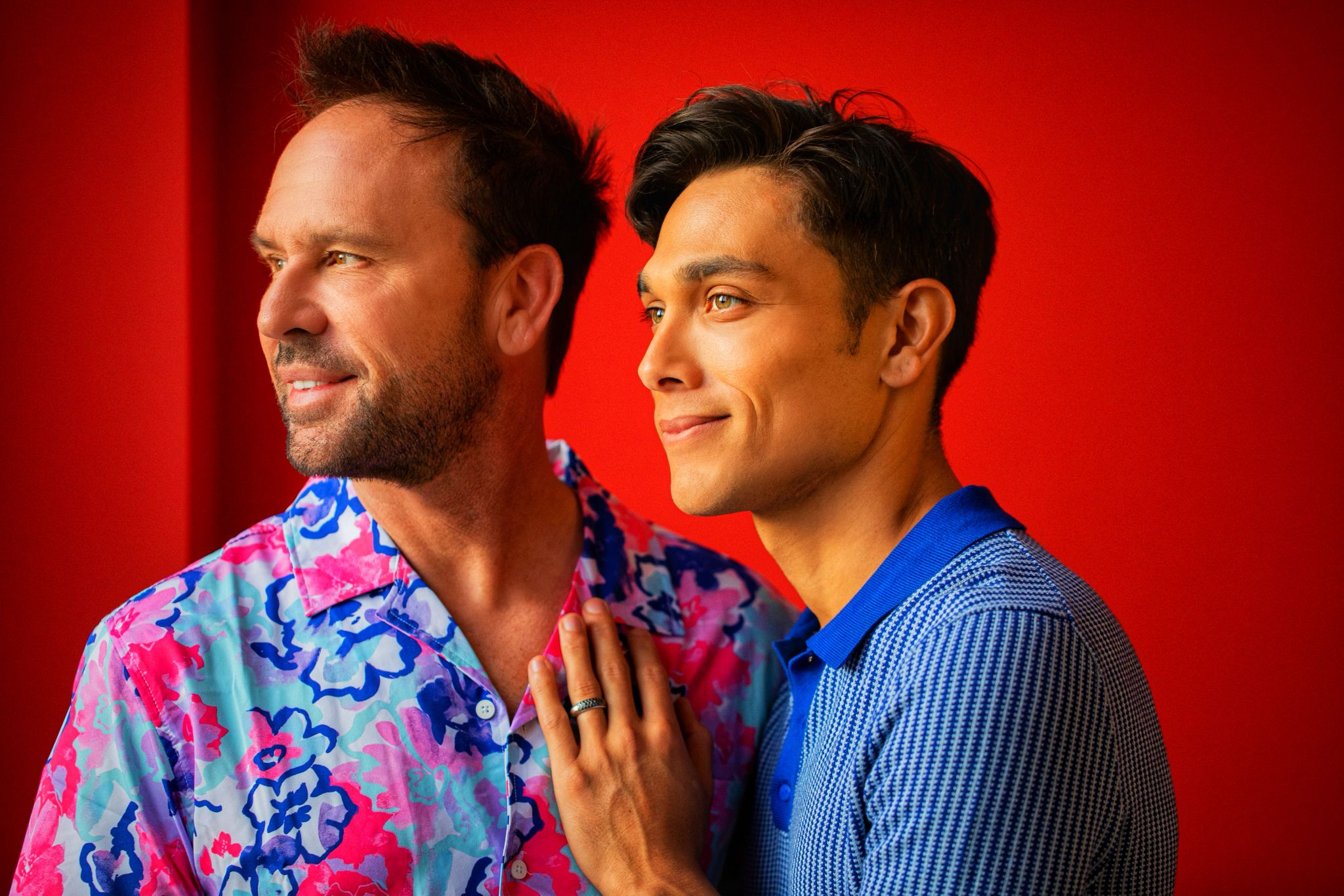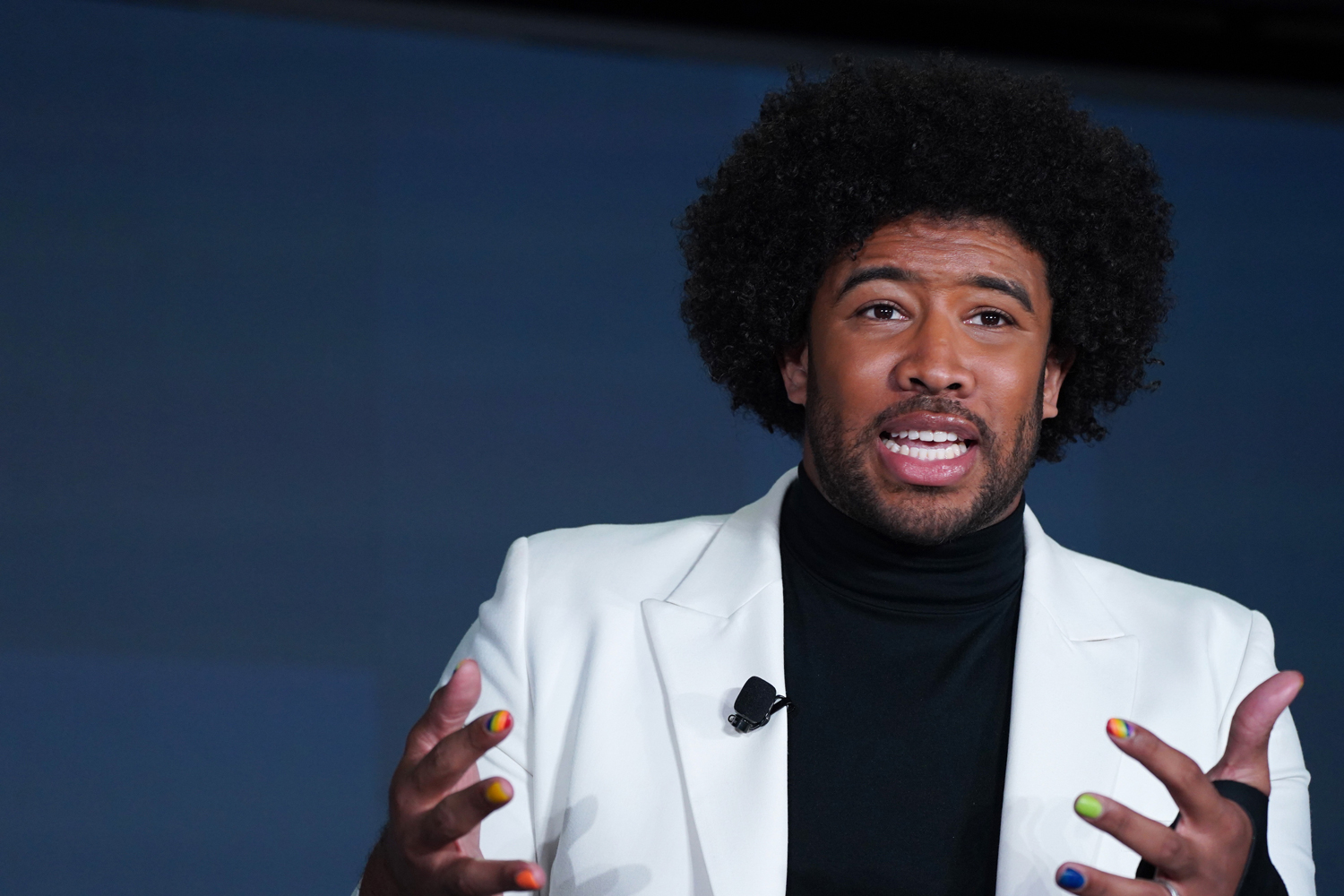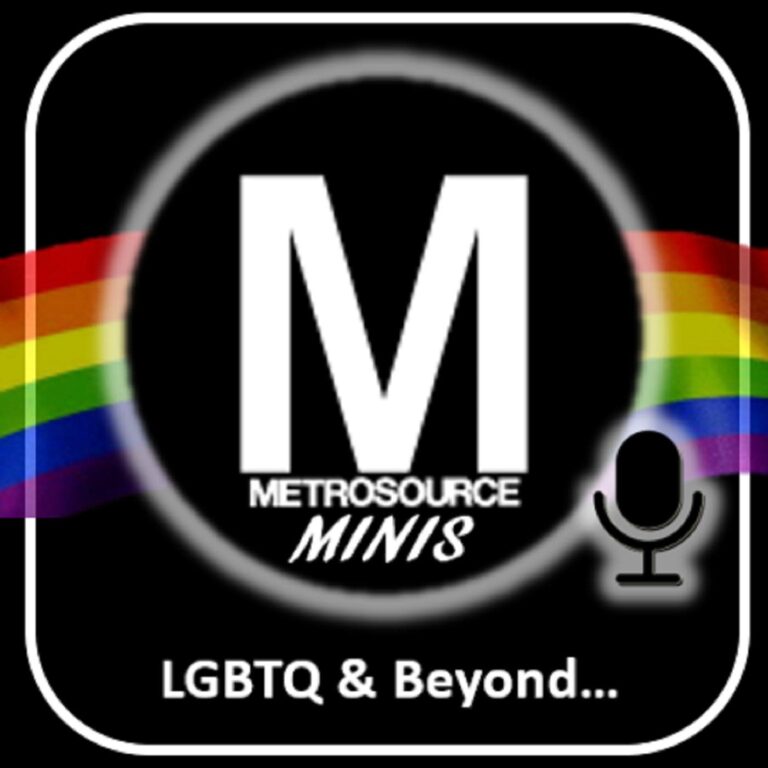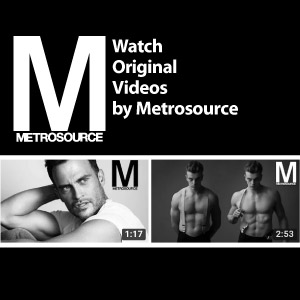Had John Cameron Mitchell done nothing besides create Hedwig and the Angry Inch, he’d still be a queer icon. Certainly the show’s punky aesthetic and social subversion place him in the pantheon of those writers he admires most: Oscar Wilde, Noel Coward and Joe Orton. But at 55, Mitchell remains relentlessly creative. In 2006, his film Shortbus dared to create a genre all its own. While the movie captures kinds of intercourse — actual, not simulated — Shortbus is really about people using sex to create a kind of communal intimacy.
Mitchell subsequently directed Nicole Kidman’s Oscar-nominated performance in the 2010 film Rabbit Hole, and in 2015 he received a Special Tony Award for playing Hedwig on Broadway after Neil Patrick Harris won Best Actor in a Musical in the role only the year before. Now he’s alternately a series regular on the new Hulu comedy Shrill and crisscrossing the country in a Hedwig backstory musical called Origin of Love. All this while he’s readying a new musical called Anthem: Homunculus starring Patti LuPone and Glenn Close — among others— to debut as a podcast. It’s a 10-part series sans visuals now streaming on a new service called Luminary.
We caught up with multi-hyphenate Mitchell at a West Village coffee shop when he surfaced momentarily between projects.
METROSOURCE: Should we start with talking about your heroes?
JOHN CAMERON MITCHELL: Sure. My favorite theater makers were always Beckett and Pinter. And Joe Orton came out of all of that with his particularly queer bomb-throwing questioning of conformity added to it. He’s also kind of the dirty punk grandchild of Oscar Wilde and Noel Coward — who couldn’t always say publicly what they would say among their friends.
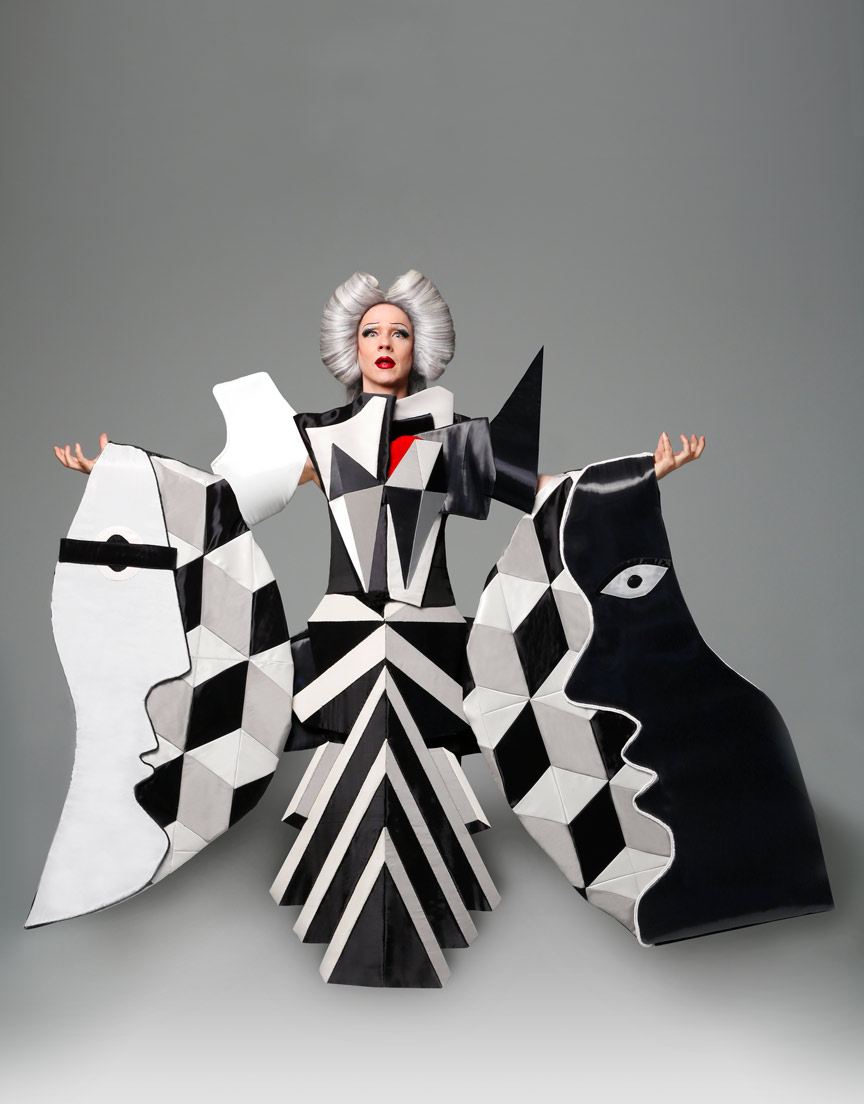
John Cameron Mitchell
Wilde still wanted to be accepted by those people, as did Noel Coward. They wanted to be amongst the hoi polloi; but they were also the court jesters of the era. The King always likes someone who can irreverently tell the truth, but still not have the power to hurt. Wilde was always questioning the rules of propriety and sexism in high society. Noel Coward not as much, but he definitely was also poking fun in a gentle way. Because they were elitists, too.
Joe Orton was much more blue collar, and closer to someone like John Lennon. So it’s ironic that The Beatles commissioned a screenplay from Orton, and it was too radical even for them. I mean, Orton had them playing crossdressing terrorists.
I wonder: Would there even be a Hedwig without Joe Orton?
MITCHELL: Not without me having read Orton. I mean, the first time I ever did drag was in Orton’s What the Butler Saw. I was kind of scared of it, but kind of forced into it as well. In that same way, I was forced into doing Hedwig, because Tommy Gnosis started out as the main character. Hedwig was a smaller role, but because we developed it at a drag club, I had to do the female character first.
Find LGBTQ-Friendly ResourcesThe thing is, the character obviously doesn’t fit into any category. And I don’t think Orton would want to be pigeonholed either. In fact, don’t ever recall him using the term “gay.” I think he liked being outside all of it, including the gay mainstream. Hedwig is not really trans. He was a gay man doing drag. He got forced into a reassignment by a patriarchy, because they required one or the other: you could call it the bi-narchy. I think Orton eschewed the binarchy as well, but he also kind of fetishized masculinity. He had all the foibles and all the perspective of an intelligent outsider.
You seem to have given Orton’s work some serious consideration. Is there a thematic thread running through what you’ve done?
In terms of what I write, I would say there is. My work tends to be about misfits and people trying to create communities of misfits. I moved around a lot as an Army brat. First it was comics and sci-fi, then it was theater and film and subcultures and enclaves — usually about people who have things they can teach about mercy, empathy and imagination.
And what about the parts you choose to play?
Right now, I’m in a show called Shrill that’s just started streaming on Hulu. I pay the mean gay boss of Aidy Bryant, and it’s a fun small role. It’s also a great gig for my Mom’s healthcare, so … I hope it gets picked up. But I really don’t like to half-ass anything. Even in my most crass money-making schemes; I try to invest myself in completely, because if you put out something half-assed, those are the kind of people you’ll reach. You put out something glib and shallow, that’s what it attracts. You have to be careful about what you put out into the world. I tend to put out things that I hope will be useful to people in their own lives.
This being the 50th anniversary of Stonewall, what goes through your mind when you think of Pride? Can you even imagine what kind of life you’d have had without the movement?
Well, I had an idea to create a sequel to Hedwig that would involve a lot more of my own personal history. Ultimately it felt like too much. But I had the idea of a character out of his insurance, crowd funding for his life, and in effect created an alternate autobiography.
In this case, my character never left my small town of Junction City, Kansas. That’s where I’m from, — and “Wicked Little Town” name checks it in Hedwig. It’s a special small town, but not anywhere you’d wanna stay, So it’s kind of a “what-if” story. What if I was the same person, and had not shared my creative work, not come out, and not taken the chances I did?
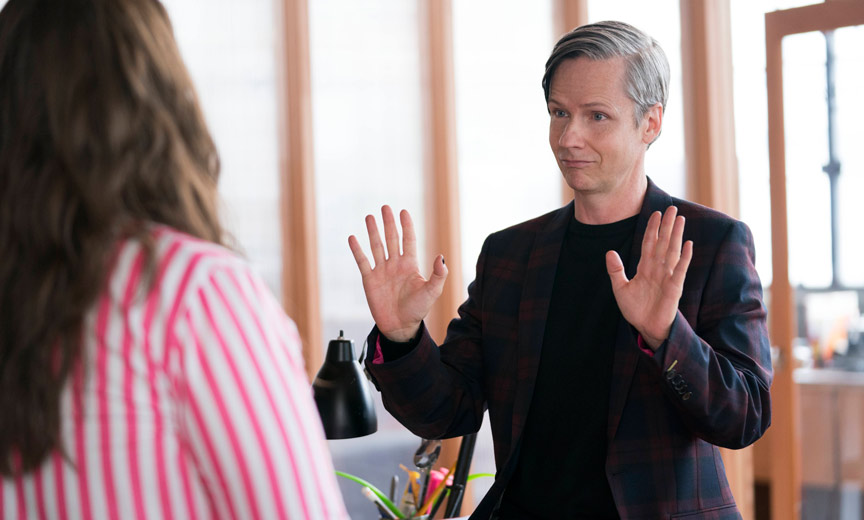
John Cameron Mitchell
And this is in production?
It’s a podcast musical series called Anthem: Homunculus just out on a new podcast network called Luminary. It’s years in the making; five and a half hours over 10 episodes. It’s a musical like Hedwig, except that it’s all audio with no video. There’s 40 actors and 40 pieces of music. Included in all of that is my boyfriend Jack, who passed away from his addictions. In a way, I had more opportunities before me than a standard autobiography, so I could do something more creative. But there are a lot of liberties taken. Glenn Close plays a version of my Mom. She’s a Scottish painter who travels the world. She’s a lost a child, as we lost my brother after he died from heart problems when he was four. She reacts by becoming more religious — an anti-abortion activist, among other things. Patti LuPone is in it as well.
That sounds like a mountain of work. And yet, you’re still on the road playing Hedwig.
Yup, in a show called Origin of Love. It’s about how Hedwig was made, including all the songs. It’ll be at Town Hall for three shows during Pride in June. Eric Bergrin created this transformer costume for me that becomes six different costumes. Mike Potter made an old lady Hedwig hairpiece that’s tinted for the Apocalypse. And it includes the songs by Steven Trask. So it’s largely about the people I met, the philosophical underpinnings of what it meant then and what it means to me now. It really is responsible for me meeting the most interesting people. And we’re also releasing a Criterion Edition of [the film adaptation of] Hedwig in June; so I’m working on that today.
Those packages typically provide a ton of extras.
Right. And there is a great documentary, art, and footage from since the film was released. It’s also exciting to have a remaster of the film going back to the negative that Warner Brothers preserved. I was also able to reposition a few shots to fix a couple of things. Since we shot on film, it also has its own gorgeous texture, because there’s actually more information on the images. Oh, and we’re pumping up the colors too; it’s very Hedwig. There’s some memorabilia and gorgeous goodies for fans.

John Cameron Mitchell
And somehow, you’re still able to host a monthly party at a bar in the West Village.
Well, we forgot what fascism is, and look where we are now. I believe understanding history and appreciating your forebears is important, so we do this monthly party called Mattachine. It’s a party we do every month at Julius’. We honor a queer hero like Joe Orton, or heroine — or villain. We even put Roy Cohn up there once as an example.
There are those who regard you as one of our best gay writers. How do you feel about that?
Well, my queer spirit guides are Walt Whitman, Oscar Wilde, Noel Coward, James Baldwin, William Burroughs, Jean Genet, Orton and Tony Kushner. Tennessee Williams, too. These are the great queer writers of the last hundred years, and they all came at it from a different angle.
For me, I know that 75% of the good things that have happened to me are because of Hedwig. In many ways, it’s been like a personal ad that’s introduced me to people, places and experiences. And really, everything you put out is a personal ad. I actually think too much fame and money are corrupting. In all honesty, I only need enough money to do what I want. I’ve f**ked my way to the middle, and I’m very much happier for it.
Want Metrosource LGBTQ content notifications? Sign up for MetroEspresso.
Last modified: June 17, 2019




